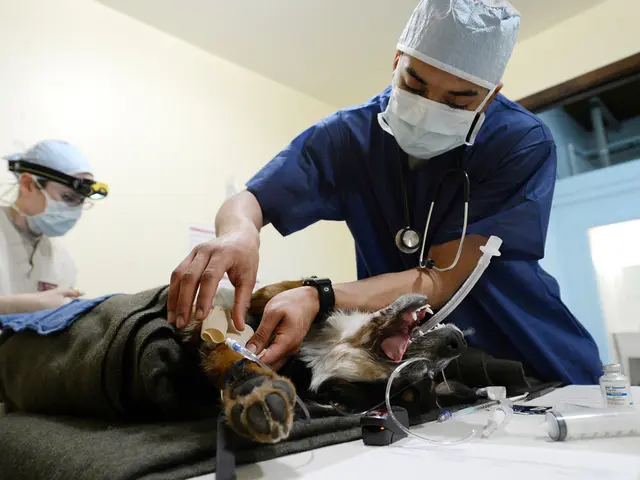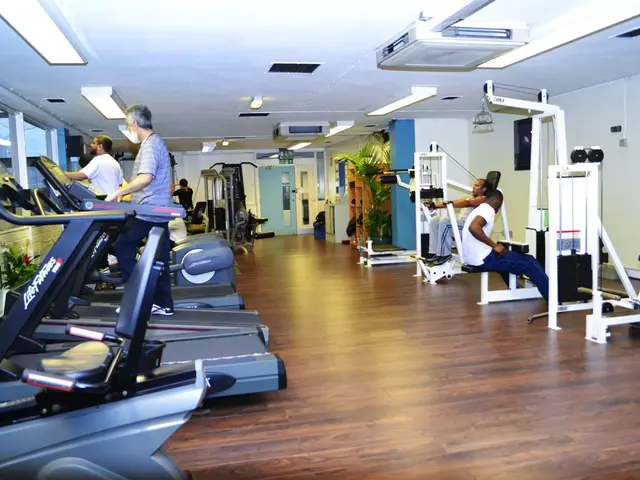Tech Innovations and their Impact on Childbirth Experiences: A Look at 'Second Life'
Revised Article:
Having a 7-month pregnancy pregnancy, journalistic powerhouse Amanda Hess stumbled upon an unexpected issue - her baby's tongue was sticking out. The ultrasound revealed a possible indicator of the rare genetic disorder, Beckwith-Wiedemann Syndrome [BWS].
"There I was, about to welcome a new life into the world, but instead, I found myself in a whirlwind of tests, consultations, and internet searches seeking answers," Hess recalls.
In a world dominated by digital technology, iPhone screens became a safe haven for Hess, offering the comfort of a pregnancy app that unfortunately fell short during her time of need. As her reality diverged from the app's focus on healthy pregnancies, she found solace in the seemingly endless web, only to encounter a darker side of the internet.
"I was bombarded with misinformation, sensationalized stories, and cruel comments about children born with BWS," she shares. "It felt like I was battling an irrational part of myself that believed the synthetic rumors about my son's genetic condition."
After a grueling 24-hour labor, Hess's son finally arrived via C-section. Hess, overwhelmed with emotion, could no longer hide her fears. But as she held her baby, her world changed.
"He was no longer a figment of my imagination, but a flesh-and-blood human being," she explains. "It was then that I realized the immense power technology wields over our emotions, influencing our perception of reality."
Her experiences led Hess to delve deeper into the impact of technology on modern-day parenthood, culminating in her book, Second Life: Living in the Digital Age of Parenting.
"I first envisioned this book before I was pregnant, but it wasn't until I entered this new chapter of my life that I began to truly understand the intricate relationship between technology and parenthood," she says. "From our online identities to the pressure to share every aspect of our lives in real-time, technology impacts every facet of our lives as parents."
Interview Highlights
On Pregnancy Apps vs. Traditional Books on Childbirth
"My phone was always by my side, and inadvertently, the pregnancy app was too," Hess explains. "Although I wasn't actively seeking advice or information, I desperately craved reassurance that I was doing well, creating a pseudo-relationship with the app."
On Advanced Prenatal and Embryonic Testing Designed to Predict Disabilities and Abnormalities
"The advancements in prenatal testing are a double-edged sword," Hess expresses. "On one hand, it offers the promise of early detection and treatment. But on the other, it risks fostering a society that values perfection and dismisses those who are different."
On the Potential Impact of Baby Monitor Surveillance
"Baby monitors can create a false sense of security, making parents believe they are providing love and attention when they are merely observing their children," Hess warns. "In my case, you can blame it on those eerie, red glowing eyes!"
On the SNOO, a High-Tech Bassinet that Responds to a Baby's Cly
"The SNOO was supposed to help me understand my baby's needs better, but I ended up questioning what the technology couldn't measure - my child's comfort and well-being," she admits.
On Finding Support from Online Communities and Forums about BWS
"Finding these online communities was a true blessing," Hess confesses. "Seeing the thousands of members comforted me, reminding me that my son was not alone. It's a testament to the power of the internet to unite people who may be geographically dispersed but share a common struggle."
Sam Briger and Susan Nyakundi produced and edited this interview for broadcast. Bridget Bentz, Molly Seavy-Nesper and Meghan Sullivan adapted it for the web.
Copyright 2025 NPR
- Amanda Hess, in her book Second Life: Living in the Digital Age of Parenting, discusses the intricate relationship between technology and modern-day parenthood, specifically highlighting the role of pregnancy apps, which she found inadequate during her unexpected ordeal with her baby's possible Beckwith-Wiedemann Syndrome.
- Hess explains that the advancements in prenatal testing, designed to predict disabilities and abnormalities, are a double-edged sword, offering early detection and treatment but potentially fostering a society that values perfection and dismisses those who are different.
- Hess notes the potential impact of baby monitor surveillance, suggesting that it creates a false sense of security, making parents believe they are providing love and attention while merely observing their children.
- In her book, Hess admits that the SNOO, a high-tech bassinet that responds to a baby's cries, was intended to help her understand her baby's needs better, but she questioned what the technology couldn't measure, namely her child's comfort and well-being.
- Hess found solace and support from online communities and forums about Beckwith-Wiedemann Syndrome, emphasizing the power of the internet to unite people who share a common struggle, despite being geographically dispersed.
- Hess shares her experiences with advanced technology in health-and-wellness, mental-health, and community, recommending that parents be mindful of the influence technology exerts on their emotional and mental well-being during the pivotal journey of parenthood.








